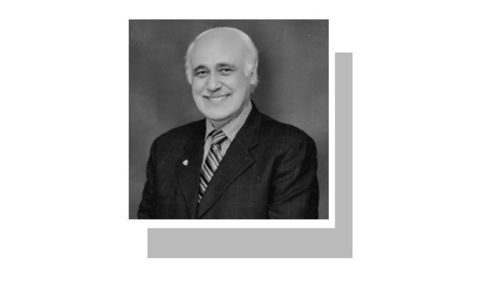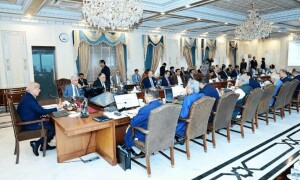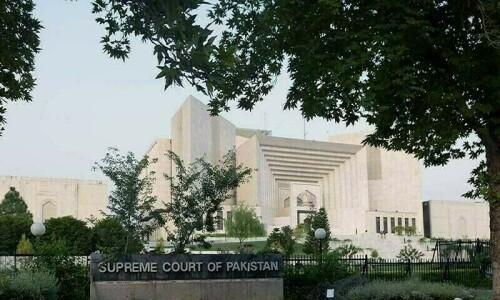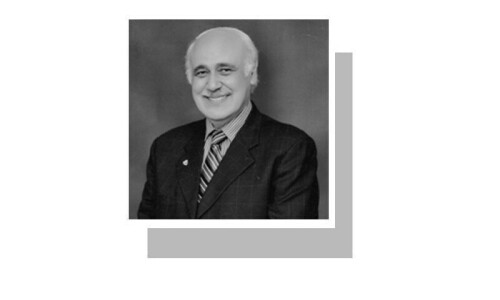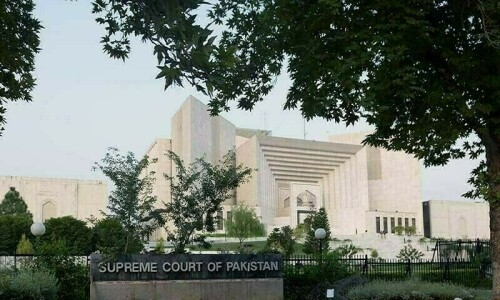BARACK Obama, his rival in last year’s American presidential election claimed, was “throwing Israel under the bus”.
Like much else that Mitt Romney said, it was facetious nonsense. It has been argued, not entirely without cause, that no previous occupant of the White House has been quite as supportive of Israel in practical terms.
There was a fly in the ointment, though. The chemistry between Obama and the Israeli Prime Minister Binyamin Netanyahu was awkward. What’s more, Israel did not figure on the itinerary of his first presidential trip to the Middle East, the highlight of which was a conciliatory peroration in Cairo, clearly intended to restore American credibility in the Arab world in the wake of George W. Bush’s crusading zeal.
Those charmed by the eloquence were disabused in due course, when it became reasonably obvious that the refreshingly unfamiliar rhetorical nuances were not about to be reflected in meaningful foreign policy adjustments. The American disconnect with Middle Eastern reality found its apogee a few years later during the popular uprising against Obama’s ingratiating Egyptian host, Hosni Mubarak. The then US secretary of state, Hillary Clinton, declared him to be “family” before marginally wiser counsel prevailed in Washington.
In the meantime, the image of Obama as the devil incarnate on the far right of the American political spectrum found an echo in Israel, where some Likudites and other extremists considered his race and his semi-Muslim origins convenient targets.
That might change after Obama last week wedded himself to the Zionist project more unequivocally than any of his predecessors. A primary purpose of his first presidential visit to Israel was to align himself sufficiently closely with the ruling elite to demonstrate the absurdity of the “under the bus” image, and this entailed a visible love-fest of sorts with Netanyahu that brings little credit to the US president, especially so soon after the formation of an Israeli cabinet that has locally been described as a dream for the Jewish settlers on occupied territory.
Obama tried to make up for it, though, with what could be described as a dream for liberal Zionists — a speech to young Israelis in which, apart from reiterating eternal US support for Israel, he made the case for a two-state solution, describing it as potentially an ideal outcome for Israel, while also moralising about the injustice to Palestinians inherent in the status quo.
“Just as Israelis built a state in their homeland,” he declared, “Palestinians have a right to be free people in their own land.” The first part of that sentence could certainly be challenged on grounds of accuracy, unless one buys into biblical mythology — as Obama explicitly did. “Peace is necessary, but peace is also just”, he told his audience, which enthusiastically applauded his comments, including a mild reprimand on the question of settlements.
The audience, mind you, was chosen by the US embassy in Israel via Facebook, so it would be optimistic to consider it a representative cross-section of Israeli society. It enraptured liberal Zionists more widely, too, with any number of starry-eyed commentators in the newspaper Haaretz hailing it as a potential game-changer that encouraged young Israelis to defy the political establishment. One Arab activist, Ali Abunimah, on the other hand, tweeted a view that many Palestinians are likely to share: “This speech will drive liberal Zionists wild because it legitimises their segregationist desires and dresses them up as ‘peace’ and ‘democracy’.”
Abunimah is among those Palestinians inclined to the view that the time for a two-state solution has passed, not least on account of the illegal settlements that have progressively encroached on occupied territory. The one-state alternative, however, is bitterly resented by most Israelis; after all, in the event, a ‘Greater Israel’ that clung on to its predominantly Jewish identity would perforce be an apartheid state, whereas a truly democratic entity would be compelled to identify itself more broadly.
It is difficult to envisage any viable Israeli political party seeking to sell this as a desirable outcome. Yet those who pay lip service to the viability of two states generally find themselves unable to propose the requisite dismantling of most settlements.
On a brief foray into Ramallah, Obama advised the Palestinian Authority’s president, Mahmoud Abbas, to accept unconditional negotiations with the Netanyahu government. The only condition that the Palestinian side is pressing is a freeze on settlement construction activity. This is hardly an extravagant demand. But the point to ponder is whether, under any conditions, a resumption of talks would lead anywhere.
Could serious American pressure possibly prod Israel in a more reasonable direction? Undoubtedly. But what are the chances Obama or anyone else will apply it? Zilch. The US president’s finely honed speech at the Jerusalem International Conventional Centre will likely be remembered, if at all, as yet another instance of wasted eloquence. Small wonder, then, that Obama conjured up an “achievement” to take with him briefly before his departure: a US-mediated rapprochement between Israel and another valuable American ally, Turkey, after a half-hearted apology from Netanyahu regarding the boarding by Israeli troops of the Gaza-bound Turkish vessel the Mavi Marmara, during which they killed nine passengers.
Iran’s nuclear ambitions and the crisis in Syria were also among the topics of conversation. The possibility of a “pre-emptive” Israeli attack on Iran remains alive, notwithstanding Obama’s reiterations about guaranteeing Israel’s security. And just after secretary of state John Kerry admonished the Iraqis for permitting the transit of weapons to Syria, it was reported that the CIA has helped to sharply increase the inflow of regional military aid to the rebels in that country.
In the Middle East, then, as much as elsewhere, American hypocrisy remains intact.



